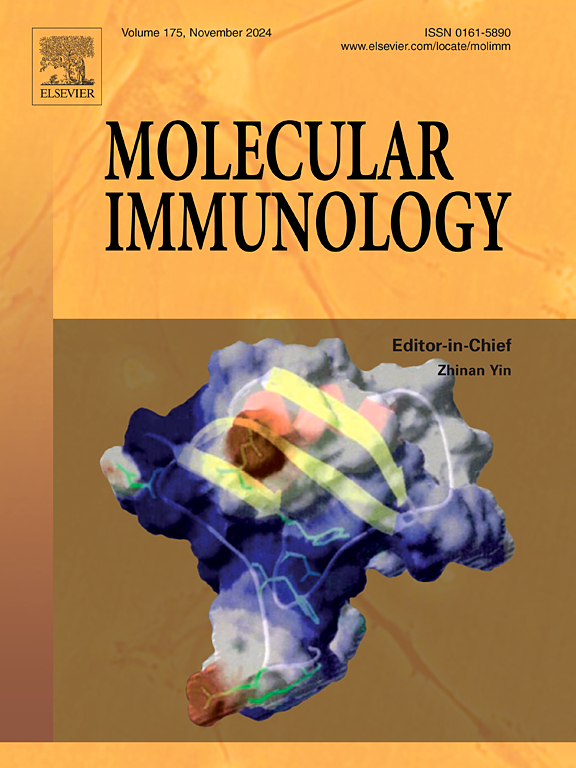m6A去甲基化酶FTO控制Th1分化和对感染的免疫
IF 3
3区 医学
Q2 BIOCHEMISTRY & MOLECULAR BIOLOGY
引用次数: 0
摘要
抗原特异性效应CD4+ T细胞是防御外源性病原体的关键。然而,CD4+ T细胞免疫应答的表观遗传机制,特别是RNA修饰,仍然不完全清楚。在这项研究中,我们利用T细胞特异性缺失脂肪量和肥胖相关蛋白(FTO),一种关键的n6 -甲基腺苷(m6A)去甲基化酶,来阐明其在CD4+ T细胞介导的免疫中的作用。我们的研究结果表明,FTO对于维持CD4+ T细胞免疫应答和保护功能至关重要。具体来说,FTO缺陷限制了CD4+ T辅助(Th)1效应细胞在抗原攻击后的扩增,并导致Th1细胞中T-bet和IFN-γ的表达降低。此外,FTO缺陷的CD4+ T细胞表现出病原体消除受损。总之,我们的研究揭示了支持CD4+ T细胞分化的一种新的表观遗传调控机制,为CD4+ T细胞免疫的转录后调控提供了新的见解,并强调了治疗策略的潜力。本文章由计算机程序翻译,如有差异,请以英文原文为准。
The m6A demethylase FTO controls Th1 differentiation and immunity against infections
Antigen-specific effector CD4+ T cells are critical for defense against exogenous pathogens. However, the epigenetic mechanisms underlying CD4+ T cell immune responses, particularly RNA modifications, remain incompletely understood. In this study, we employed a T cell-specific deletion of the fat mass and obesity-associated protein (FTO), a key N6-methyladenosine (m6A) demethylase, to elucidate its role in CD4+ T cell mediated immunity. Our findings demonstrate that FTO is essential for maintaining CD4+ T cell immune responses and protective functions. Specifically, FTO deficiency restricts the expansion of CD4+ T helper (Th)1 effector cells following antigen challenge and results in decreased expression of T-bet and IFN-γ in Th1 cells. Additionally, FTO deficient CD4+ T cells exhibit impaired pathogen elimination. Collectively, our study reveals a novel epigenetic regulatory mechanism in supporting CD4+ T cell differentiation, providing new insights into the post-transcriptional regulation of CD4+ T cell immunity and highlighting the potential for therapeutic strategies.
求助全文
通过发布文献求助,成功后即可免费获取论文全文。
去求助
来源期刊

Molecular immunology
医学-免疫学
CiteScore
6.90
自引率
2.80%
发文量
324
审稿时长
50 days
期刊介绍:
Molecular Immunology publishes original articles, reviews and commentaries on all areas of immunology, with a particular focus on description of cellular, biochemical or genetic mechanisms underlying immunological phenomena. Studies on all model organisms, from invertebrates to humans, are suitable. Examples include, but are not restricted to:
Infection, autoimmunity, transplantation, immunodeficiencies, inflammation and tumor immunology
Mechanisms of induction, regulation and termination of innate and adaptive immunity
Intercellular communication, cooperation and regulation
Intracellular mechanisms of immunity (endocytosis, protein trafficking, pathogen recognition, antigen presentation, etc)
Mechanisms of action of the cells and molecules of the immune system
Structural analysis
Development of the immune system
Comparative immunology and evolution of the immune system
"Omics" studies and bioinformatics
Vaccines, biotechnology and therapeutic manipulation of the immune system (therapeutic antibodies, cytokines, cellular therapies, etc)
Technical developments.
 求助内容:
求助内容: 应助结果提醒方式:
应助结果提醒方式:


